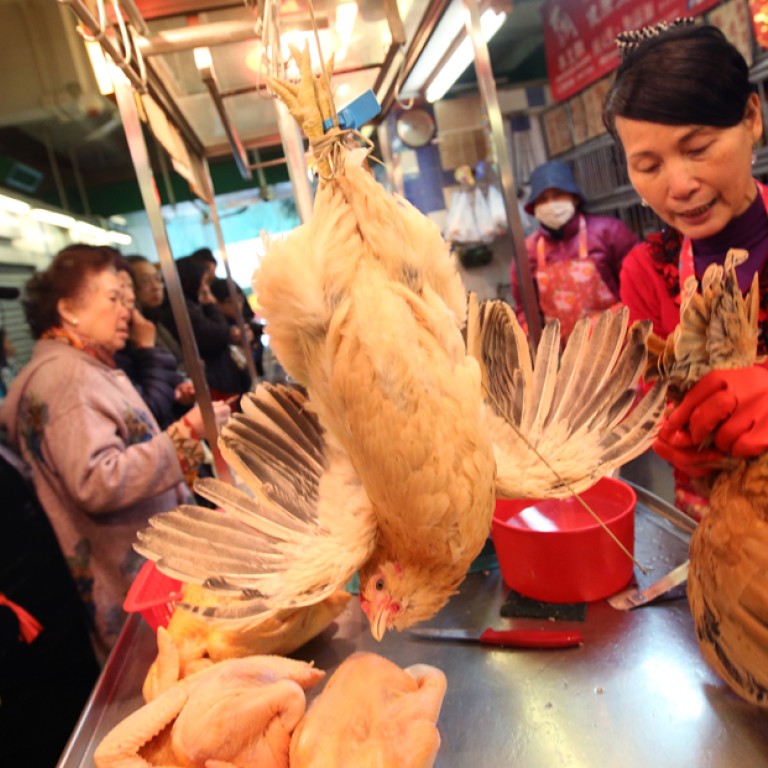
When it comes to chickens, put public health above tradition
Live poultry imports from the mainland will resume eventually, after suggestions we stop them altogether. But this could be reviewed if the implementation of new arrangements to quarantine them from local birds fails to prevent the entry of the deadly H7N9 virus. Meanwhile, though sale of locally bred live birds has resumed, live mainland birds remain banned for up to four months while segregation measures are put in place.
Live poultry imports from the mainland will resume eventually, after suggestions we stop them altogether. But this could be reviewed if the implementation of new arrangements to quarantine them from local birds fails to prevent the entry of the deadly H7N9 virus. Meanwhile, though sale of locally bred live birds has resumed, live mainland birds remain banned for up to four months while segregation measures are put in place.
The authorities banned all live poultry sales for 21 days and culled 20,000 birds just ahead of the Lunar New Year, after the virus was discovered in a sample taken from a mainland bird in the Cheung Sha Wan wholesale market. As a result, many Hongkongers went without chicken for the traditional family feast rather than settle for a frozen substitute. This is the fifth culling since 1997, when six people died in the city in the first recorded bird-flu outbreak. Detection of the virus automatically triggers a cull, a halt to imports and a 21-day ban on live sales.
The extension of the ban on mainland imports, which average about 7,000 birds a day compared with local supplies of 12,000, gives the government time to choose and prepare a site where imported birds can be segregated until test results confirm they are safe. This will reduce the risk of cross-infection. But Hongkongers should heed the warning by University of Hong Kong microbiologist Yuen Kwok-yung that the greatest risk of contracting H7N9 remains in visiting live poultry markets on the mainland.
The latest scare has inevitably revived calls for defensive measures such as central slaughtering of poultry and more reliance on frozen chickens, at the cost of job losses and tradition. The government has resisted them in the past because of a perception of reduced risk but said the decision was not necessarily permanent because the virus and the risk could change. Vigilance remains key to containing bird-flu viruses, but that does not dispense with the need for strong preventive measures in the event they mutate and spread easily among people. Public health must be put above tradition.

